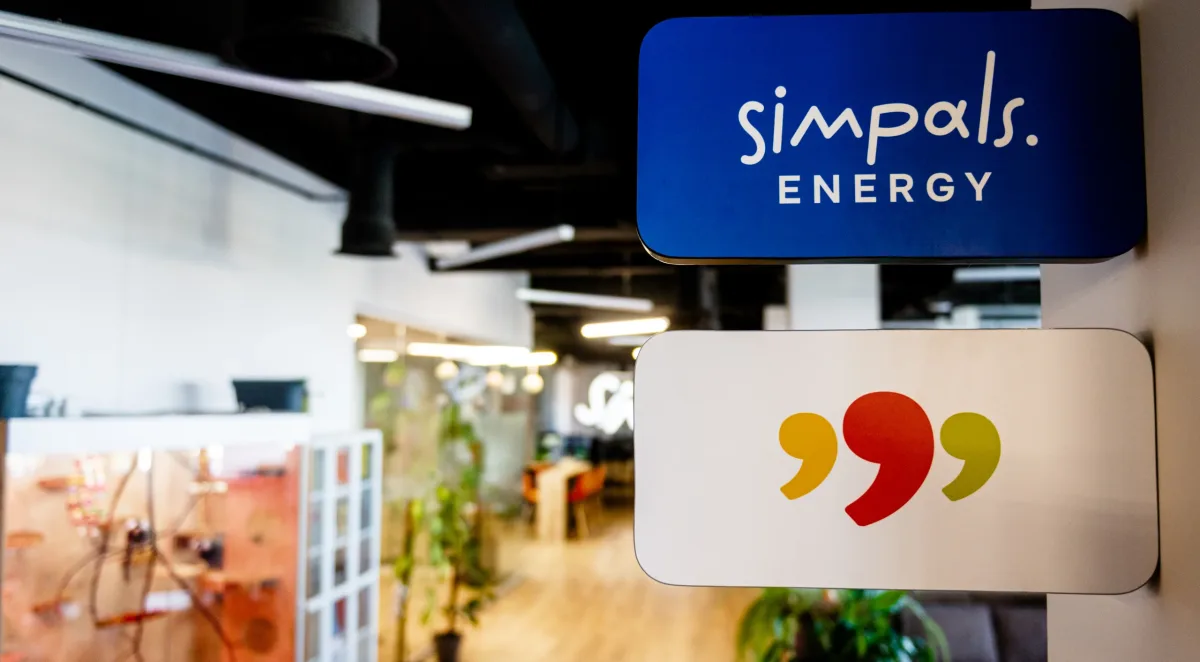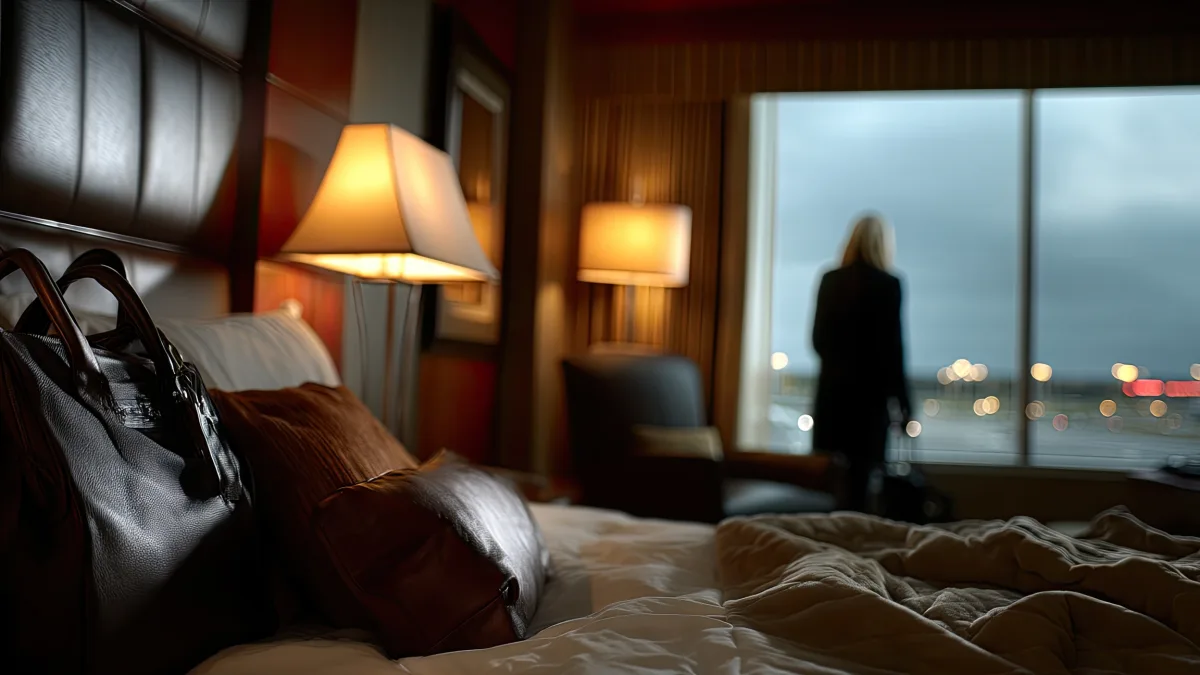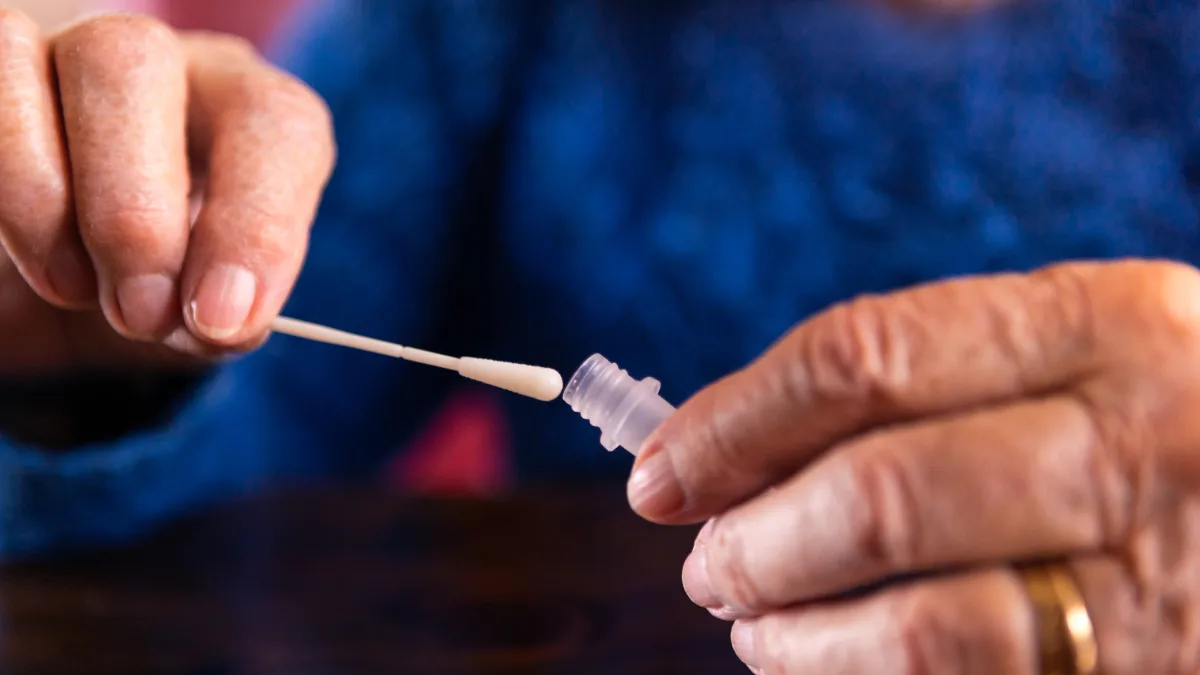Simpals isn’t your typical start-up. It’s a 200-person lab that builds everything from underwater headsets to viral animation. In 20 years, it’s launched over a hundred products. Most failed. A few made history. One got landlocked Moldova into a Netflix documentary about diving.
“Follow free diver Johanna Nordblad in this movie as she attempts to break the world record for distance traveled under ice with one breath,” said Simpals founder Dmitri Voloshin.
There’s a punching bag shaped like a man near the kitchen. A masseuse makes regular rounds. Monkeys bounce inside a glass box, watching office life unfold. But it’s not the toys or the perks that define Simpals and its Chișinău office. It’s how the company is run.
“We’re more like a start-up of start-ups,” says CEO Roman Știrbu. “Each team works autonomously.”
They move fast, test constantly, and scrap what doesn’t work. “Speed matters more than certainty,” Știrbu says. And if logic doesn’t settle a debate? “Sometimes the best argument wins. Sometimes the market does.”
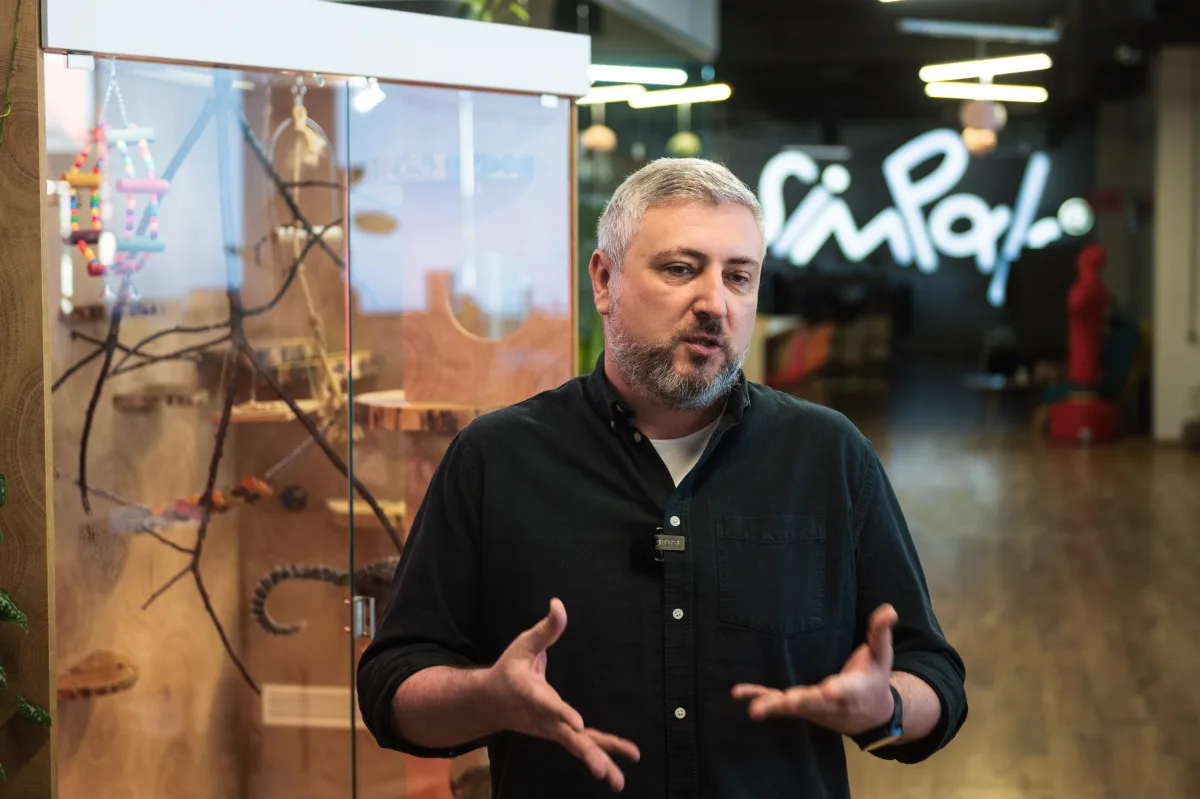
Simpals is more than a tech company. It’s a hub of media, animation, software and hardware, and sport under one roof. It runs over 30 platforms, including Moldova’s largest classifieds site (999.md) and big news portals. In its office, one person might oversee the work of half a dozen websites or record a podcast, and the other can pet a real monkey or play PlayStation during a break.
All that is constructed as an ecosystem that breathes and lives. Its animation studio produces viral VR shorts; its Garage project team builds hardware like Lobster and Sonr. Then, its sports arm, Sporter.md, organises everything from triathlons to freediving meets. In the same office, developers, animators, and editors work side by side.
At the same time, Simpals remains closely connected to Moldova’s start-up ecosystem, allowing it to monitor market shifts in real time. As a Startup Moldova board member, Știrbu shares lessons from Simpals’ tech projects with the next wave of start-ups.
Lobster: The Moldovan weight behind world records
At the 2013 Freediving World Championship in Belgrade, Voloshin, a freediver himself, saw elite athletes wearing makeshift collars looking like bike tires. “It looked ridiculous,” he later wrote in his blog. “Why does no one fix this?”
Why was he bothered? In brief, freediving is a sport where athletes dive underwater on a single breath, without using oxygen tanks. It requires endurance, technique, and mental control. The most important thing is that even minor equipment flaws can put performance or safety at risk.
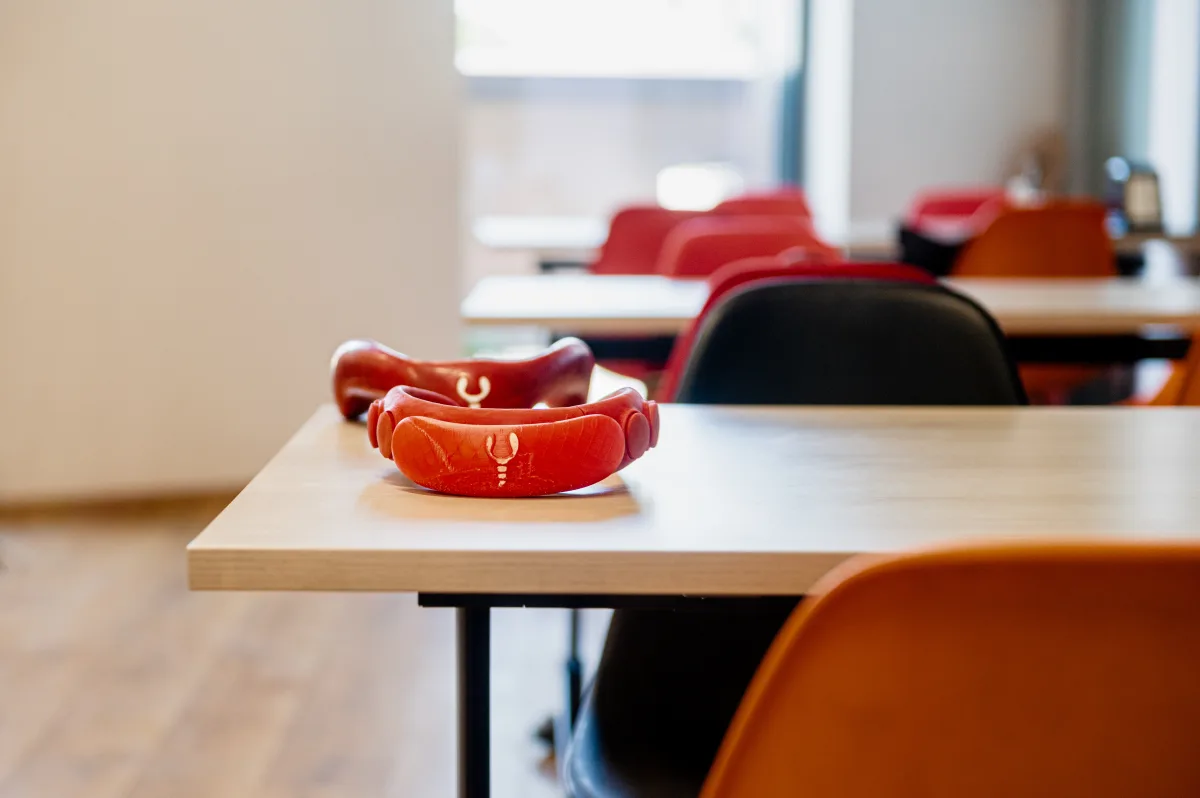
In Chișinău, the Simpals team built five prototypes of Lobster in two months, ending up with a modular collar that improves stability and reduces drag for freedivers. Versions now range from the Lobster for pools to the Squid for deep water.
“In freediving,” product manager Alexandra Dobrova notes, “word spreads fast if something fails.” That means they have to get it right every time. Dobrova called freediving athletes and instructors directly, asking for honest feedback. “That was the breakthrough. We realised they all know each other. Reputation is everything.”
Top athletes now use the Lobster in world-record dives, including Ming Jin (China) with 307 m, Goran Čolak (Croatia) with 205.97 m, Julia Kozerska (Poland) with 214 m, and Sanda Delija (Croatia) with 103 m.
Every Lobster shipment is manually checked in-house. For large orders, the entire team joins in. “We once had to send 150 units to South Korea,” Dobrova recalls, noting that their primary market is the US.
Sonr: A voice in the water
Sonr is an underwater communication system developed by Simpals. It’s a bone-conduction headset that lets coaches talk to swimmers in real time, even while they’re underwater. The team originally built it for athletes, assuming they’d want music or motivation during long swims.
“But swimmers weren’t the ones struggling,” says Știrbu. “Coaches were.” The real issue was shouting across the pool, wasting time, and wrecking vocal cords.
So the Simpals’ team shifted focus. Sonr Coach became a bone-conduction headset for real-time feedback, with one coach speaking to many swimmers. The sound travels through the skull and skips the eardrums. But coaches don’t hold the purse strings.
“You have to go through the facility, the federation, sometimes even the ministry,” Știrbu says. “It’s a slow sell.” Simpals has a separate sales team just for targeting schools and swim clubs across Europe and North America.
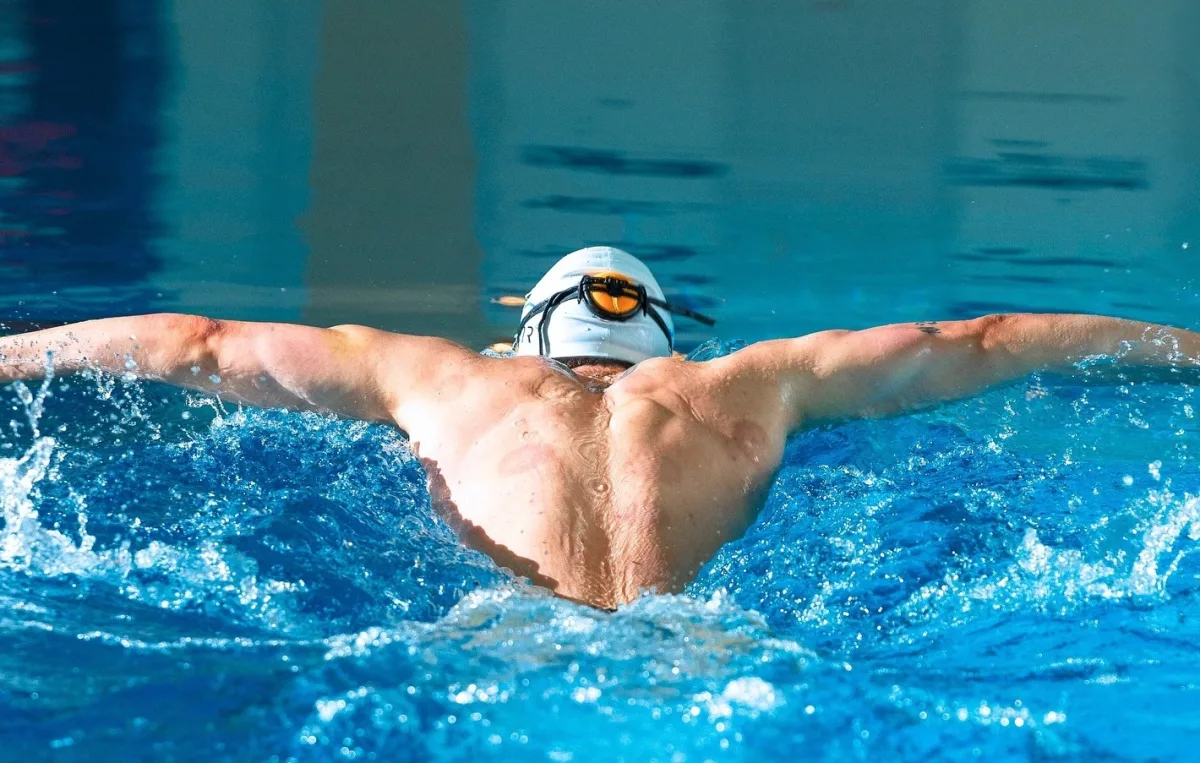
The team is now testing Sonr Pro, an adaptive audio system that responds to swim style and pace. With AI-driven analysis, the device could match music tempo to movement, or suggest corrections based on real-time motion.
Every version of Sonr is tested with swimmers, safety officers, and competition judges. “In freediving and other activities like this, you only have one breath,” Dobrova says. “That’s how seriously we treat feedback.”
Today, Sonr is sold on Amazon and used in over 60 countries. Athletes like European champion Barbara Pozzobon, Paralympian Andreas Onea, and NCAA coach Matt Barany have tested it. Ukraine’s team calls it “clear and powerful,” while coaches in Dubai say it ended the shouting. …
For Simpals, Sonr wasn’t just a product line. It was a proving ground for hardware, for export, and for what Moldova can build next. “As an entrepreneur, you don’t make five-year plans anymore,” Știrbu says. “You test a hypothesis. If it holds, you go deeper.”
“We try not to fall in love with ideas,” Știrbu continues. Inside the product teams, this attitude works across generations. “We deliberately mix young people with veterans,” Știrbu adds. “One has speed, the other has wisdom. We ask: Did you test it? Did users ask for this? If not, we stop. That’s our form of radical honesty.”
The Simpals’ team now spans over 200 people, with hubs in Moldova and Romania, and remote contributors across Europe. But the centre of gravity remains Chișinău. “We’ve launched over a hundred products in two decades,” Știrbu says. “What matters is that we always keep exploring.”
Photo: Iurie Gandrabura



